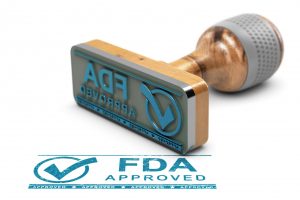I’ve written extensively about problems with some Philips CPAP and BiPAP machines, including alleged injuries, affected machines, recalls, and potential litigation. That litigation is ramping up, but a new concern has arisen over the FDA’s inadequate and delayed recall process.
Specifically, governmental safeguards designed to protect the public from faulty or dangerous medical devices may not be working properly. Using the Philips recall situation as a prime example, let’s examine what going on with the U.S. Food and Drug Administration (FDA) and why there might be room for improvement in how it handles potentially dangerous medical devices.
The FDA’s Role in Keeping Consumers and Patients Safe
The primary mission of the FDA is to regulate a large class of medical and consumer goods and products. Most of these include:
- Food (the regulation of certain foods is handled by another federal agency, the U.S. Department of Agriculture)
- Drugs (prescription and over-the-counter)
- Biologics (medical products that are biological, such as vaccines, gene therapy, and tissue products)
- Medical devices
- Devices that emit radiation
- Cosmetics
- Veterinary products
- Tobacco
The FDA’s primary goal in regulating these products is to make sure they’re safe and/or provide adequate warnings to the general public about their risks. This is especially true with medical devices and pharmaceutical drugs, which usually go through an extensive approval process that occurs before a device or medication gets sold to the general public.
Unfortunately, this approval process isn’t perfect. After a product hits the market, unexpected problems can arise. To deal with this, the FDA orders and/or oversees product recalls. The Philips BiPAP and CPAP machine recall has shed some light on how this recall process might not work as well as it should.
How the FDA Recall Process Should Work
The FDA requires certain entities (like medical device makers) to report problems with their devices to the FDA. Healthcare professionals and patients may also submit reports.
These reports go to the FDA’s Manufacturer and User Facility Device Experience (MAUDE) database. The FDA is then supposed to review each report and take appropriate action. Given how there could be thousands of medical devices in use, as well as the fact that a report may not be 100% complete (or truthful), the FDA won’t necessarily take immediate action if there’s just one negative report about a certain device.
But the FDA is supposed to analyze the data over time to identify any trends or patterns with a particular device or group of devices. One bad report may not mean anything. But several dozen bad reports when only a few hundred devices are in active use could be a sign of a problem. The FDA can then decide to order a recall themselves or suggest to the manufacturer that it should initiate a voluntary recall.
Why the FDA Recall Process May Be Broken
According to an investigative report by ProPublica, there are several problems with MAUDE in the recall process. First, mandatory reporters (like medical device companies) should submit reports in a timely fashion. This generally means filing a report within 30 days of a patient’s death or a device malfunction. However, these reports often get filed late.
How late? Well, ProPublica’s report found that Philips (and its related subsidiaries) filed at least 60,000 reports late since 2010. Many of these reports were late by several years. Of these 60,000 reports, at least 3,700 reports involved Philips breathing machines and ventilators.
Second, medical device makers often need to provide follow-up information to the FDA. During this follow up process, the FDA requires the companies to change the dates of when the companies first learned of the problem. This new date is usually later, meaning the records in MAUDE appear to show that the device company learned of the problem later than they actually did.
In addition to the ProPublica report, there was a 2011 report from the U.S. Government Accountability Office (GAO) that looked into how the FDA conducts its recalls. It found multiple problems within the recall oversight process, such as:
- The FDA often took more than a year to complete a recall (the FDA had a goal of completing them in 90 days).
- The FDA did not analyze the recall data to find systemic problems in the medical devices, such as common causes for problems leading to the recalls.
- The FDA did not always follow its own recall procedures, such as inspecting the manufacturing facility of a medical device maker.
- The FDA had inconsistent procedures that led to inconsistencies in recall effectiveness.
- The FDA did not have specific parameters in place to determine whether a medical device company properly completed its recall.
What’s Being Done About This Problem?
As of December 13, 2023, Senators Richard Durbin and Richard Blumenthal have sent a letter to the GAO asking them to update the 2011 report by investigating the FDA’s oversight of medical device recalls and identify ways the process could be improved.
Senator Blumenthal has also sent an October 10, 2023 letter to the FDA and U.S. Department of Justice (DOJ) asking them to “take immediate action” against Philips relating to allegations that it knew its ventilators and breathing devices were dangerous due to complaints it received, but withheld this information from the FDA. We’ll now have to wait and see how the FDA, DOJ and GAO respond to these letters.
If you’re using a Philips breathing machine that’s subject to a recall, please talk to your healthcare provider about whether you should continue using it. If you think you’ve been harmed by your machine, you might have some legal options. To discuss what these are, you can call me at 919.334.6277 or contact my office.
 North Carolina Product Liability Lawyer Blog
North Carolina Product Liability Lawyer Blog



